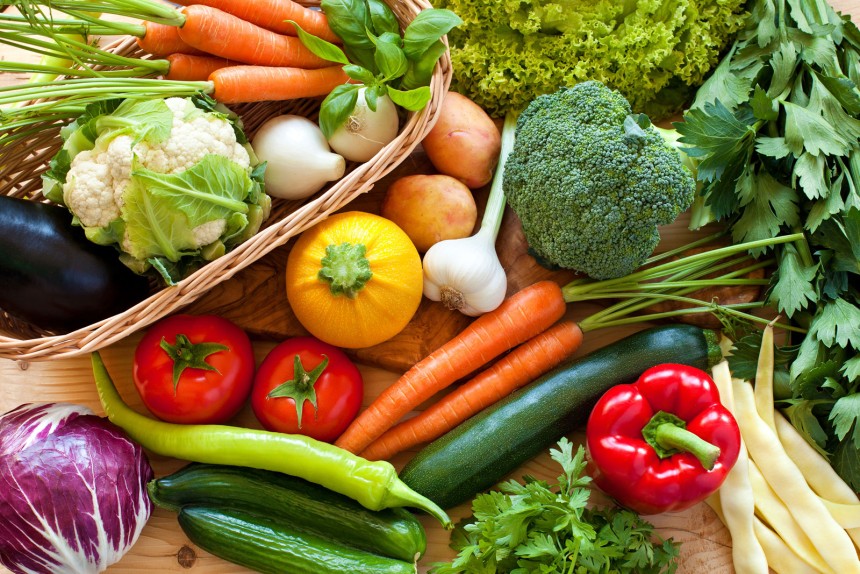
The Role of Vegetable Buyers in the Global Food Supply Chain
Explore the essential role of vegetable buyers in the global food supply chain, their challenges, and impact on agriculture and consumer choices.
Vegetable buyers are pivotal players in the global food supply chain, connecting farmers, wholesalers, retailers, and consumers. Their role extends far beyond simply purchasing vegetables; they are responsible for ensuring that fresh, high-quality produce reaches markets and tables around the world. This story delves into the multifaceted responsibilities of vegetable buyers, the challenges they face, and their impact on the agricultural and food industries.
Vegetable buyers operate at various levels of the supply chain, each with distinct responsibilities and challenges:
Farm-Level Buyers:
- Direct Sourcing: These buyers often work directly with farmers to source vegetables. They may represent wholesalers, retailers, or food processing companies. Their primary task is to negotiate prices, quantities, and delivery schedules with farmers.
- Quality Assurance: Farm-level buyers are responsible for ensuring that the produce meets specific quality standards. This includes factors like size, color, ripeness, and absence of defects. They often conduct on-site inspections or hire third-party inspectors to assess the quality before purchase.
- Sustainability Practices: Increasingly, farm-level buyers are emphasizing sustainable farming practices. They may require farmers to follow organic farming methods, use less water, or reduce the use of pesticides. This is driven by consumer demand for environmentally friendly and health-conscious products.
Wholesale Buyers:
- Bulk Purchasing: Wholesale buyers purchase large quantities of vegetables, which are then distributed to retailers, restaurants, and other buyers. They operate in major agricultural markets and hubs where produce from multiple farms is aggregated.
- Price Negotiation: Wholesale buyers play a critical role in setting market prices. They must balance the need to secure produce at competitive rates with ensuring that farmers receive fair compensation for their products.
- Logistics Coordination: Once purchased, the vegetables must be transported efficiently to minimize spoilage. Wholesale buyers often work closely with logistics companies to ensure timely and cost-effective transportation.
Retail Buyers:
- Consumer Demand: Retail buyers are directly influenced by consumer preferences. They must anticipate trends in vegetable consumption, such as the growing demand for organic or locally-sourced produce, and adjust their purchasing accordingly.
- Inventory Management: Retail buyers are responsible for maintaining optimal stock levels. They must ensure that there is enough fresh produce to meet consumer demand without overstocking, which can lead to waste.
- Supplier Relationships: Establishing and maintaining strong relationships with suppliers is crucial for retail buyers. Reliable suppliers ensure a consistent supply of high-quality vegetables, which is essential for customer satisfaction.
Challenges Faced by Vegetable Buyers
Vegetable buyers face numerous challenges that require them to be highly adaptive and knowledgeable about the agricultural and food industries:
Seasonality and Availability:
- Seasonal Variations: The availability of vegetables is highly seasonal, which means that buyers must plan their purchases around harvest cycles. This requires a deep understanding of agricultural patterns and the ability to source produce from different regions to maintain a steady supply.
- Climate Change: Climate change is disrupting traditional growing seasons, making it more difficult to predict when and where vegetables will be available. Buyers must be proactive in identifying alternative sources and may need to invest in new technologies to monitor and forecast weather patterns.
Price Fluctuations:
- Market Volatility: The price of vegetables can be highly volatile, influenced by factors such as weather conditions, pest outbreaks, and changes in consumer demand. Buyers must be skilled negotiators and have contingency plans in place to manage these fluctuations.
- Global Trade Policies: International trade policies and tariffs can also impact the cost and availability of vegetables. Buyers who source produce from abroad must stay informed about geopolitical developments and adjust their strategies accordingly.
Food Safety and Quality Standards:
- Regulatory Compliance: Vegetable buyers must ensure that the produce they purchase complies with food safety regulations in their respective countries. This includes adhering to standards for pesticide residues, microbial contamination, and traceability.
- Consumer Expectations: Consumers are increasingly demanding transparency about where their food comes from and how it is produced. Buyers must be able to provide detailed information about the origin and handling of the vegetables they purchase.
Sustainability and Ethical Sourcing:
- Environmental Impact: There is growing pressure on vegetable buyers to source produce that is grown sustainably. This includes reducing the carbon footprint of transportation, minimizing waste, and supporting farming practices that preserve soil health and biodiversity.
- Fair Trade and Ethical Practices: Buyers are also expected to ensure that the farmers and workers involved in the production of vegetables are treated fairly. This includes paying fair prices, providing safe working conditions, and avoiding exploitation.
The Impact of Vegetable Buyers on the Industry
Vegetable buyers have a significant impact on the agricultural and food industries, shaping trends and driving innovation:
Supporting Farmers:
- Market Access: By purchasing produce from farmers, buyers provide them with access to markets they might not reach on their own. This can be especially important for small-scale farmers who lack the resources to market their produce independently.
- Capacity Building: Some buyers invest in training and support for farmers, helping them to improve their farming practices, increase yields, and meet quality standards. This can lead to higher incomes for farmers and a more stable supply of produce.
Influencing Consumer Choices:
- Promoting Healthy Eating: Retail buyers play a key role in promoting healthy eating by selecting and marketing a wide range of vegetables. They can influence consumer choices by highlighting the benefits of fresh produce and offering convenient options like pre-packaged salads or vegetable mixes.
- Driving Trends: Buyers are often at the forefront of food trends, introducing new or exotic vegetables to the market. Their decisions can help popularize vegetables that were previously less well-known, contributing to a more diverse and nutritious diet.
Enhancing Food Security:
- Supply Chain Resilience: By diversifying their sources and building robust supply chains, vegetable buyers help to enhance food security. They ensure that vegetables are available year-round, even in the face of challenges like crop failures or logistical disruptions.
- Waste Reduction: Buyers who focus on efficient inventory management and logistics can significantly reduce food waste. This not only has environmental benefits but also contributes to making food more affordable and accessible.
The Future of Vegetable Buying
The future of vegetable buying is likely to be shaped by several key trends:
Technology Integration:
- Digital Platforms: The use of digital platforms for buying and selling vegetables is expected to grow. These platforms can streamline transactions, provide real-time market data, and connect buyers with a wider range of suppliers.
- Data Analytics: Advanced data analytics can help buyers make more informed decisions by predicting demand, optimizing supply chains, and identifying new opportunities for sourcing.
Sustainability and Ethical Considerations:
- Green Initiatives: Vegetable buyers will continue to play a crucial role in promoting sustainable practices throughout the supply chain. This may include investing in renewable energy, reducing packaging waste, and supporting regenerative agriculture.
- Ethical Sourcing: As consumers become more aware of the social and environmental impacts of their food choices, ethical sourcing will become increasingly important. Buyers who prioritize fair trade and sustainable practices will be well-positioned to meet this demand.
Globalization and Localization:
- Balancing Act: The globalization of food supply chains will continue, but there will also be a growing emphasis on local sourcing. Buyers will need to balance the benefits of global trade with the desire to support local economies and reduce the environmental impact of long-distance transportation.
In conclusion, vegetable buyers are essential to the functioning of the global food supply chain. They face numerous challenges, but their role in ensuring the availability of fresh, high-quality produce is critical to the health and well-being of consumers worldwide. As the industry evolves, vegetable buyers will need to adapt to changing technologies, consumer preferences, and environmental considerations, making their work more complex and impactful than ever before.

Discover the Wonders of Leaf Land Shop: Your Ultimate Destination for...
In today’s fast-paced world, where we are surrounded by technology and urban landscapes, t...
Don’t Just Show, Prove: Why Lawyers Need Expert Video Storytelling in...


